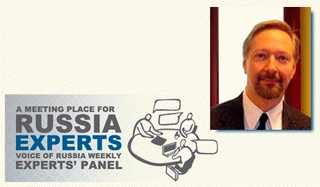First published on May 8, 2013 as part of the Voice of Russia's Expert's Panel
Despite some recent positive commentary about Russia, I must agree with the majority of American analysts that the terror acts in Boston are not a game-changer in Russian-American relations.
The reason is that the distrust underlying our relations remains in full force. American elites still believe that there is a "values gap" between Russia and America, and the discovery of a common foe does not alter this. As was the case once before, during the Second World War, having a common enemy may make tactical cooperation a necessity, but it does not make opinion-makers any less wary.
Do you recall the reaction of major US media outlets when Vladimir Putin offered his unconditional support to the United States after the terrorist attacks of September 2001? America's most influential columnist, William Safire of the New York Times, warned that "we should not forget that once up on its hind legs, the Russian bear will growl again" (9 November 2001). In the Wall Street Journal, Richard Pipes reminded us "how quickly we were disillusioned at the end of World War II . . . given the shallowness of the domestic base for Mr. Putin's pro-Western policy, the latter can quickly reverse itself" (13 November 2001). The prize for casting Putin's gesture of friendship in its most sinister light, however, must surely go to Anne Applebaum, now on the Washington Post's editorial board but then writing in the Daily Telegraph: "Putin's commitment to America's war on terrorism was made so abruptly, and is so clearly personal, that I suspect it comes from something deeper: his racism" (18 November 2001).
This environment of suspicion and distrust points directly to the reason why the FBI failed to pursue its investigation of the Tsarnayev brothers. Not because of professional incompetence or interagency communication failures. The FBI failed to follow up on at least three distinct referrals from Russian security agencies because it simply did not trust the motives of the source. Had similar requests come from the United Kingdom, Israel, or Germany, I suspect they would have been treated quite differently.
Those who defend the FBI by pointing out that Bureau requested more information from the FSB but never got it, are missing the point (although it would be interesting to know just what was in the two subsequent FSB messages). If distrust of Russia is the norm, then the FBI's response is perfectly understandable.
For their part, by alerting the FBI to a potential threat on American soil from individuals who had permanent US residency status, Russian security agencies did about as much as they could do. We can hardly expect a foreign security agency to make further efforts to share operational details when the original tip was deemed insufficient. If three alerts are not enough to warrant further investigation, would three more requests, or even thirty more, have made any difference?
It is simply not right to blame the FBI when, if truth be told, all US government agencies view their Russia counterparts with the same suspicion. And how could they not when Congress and the media regularly reinforce that suspicion? If blame must be apportioned, therefore, let it be shared by the entire US government, the Administration as well as the Congress. Everyone dropped the ball on this one, by failing to uproot such suspicions and promoting better relations with Russia.
Can we learn from past mistakes? Individuals certainly can, although it is never easy. But the real question is whether the bulk of American opinion makers, now clearly hostile toward Russia and its president, are willing to revise their deeply held assumptions. Perhaps they are, but it will require the articulation of an alternative view of Russian political culture and the leadership to promote such a development.
Postscriptum: For my own early attempt to provide an alternative view of Russian political culture, see The Rebirth of Russian Democracy (Harvard University Press, 1997).





